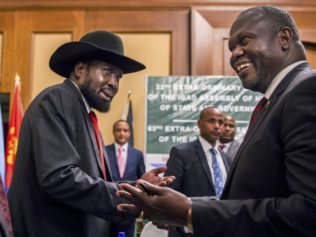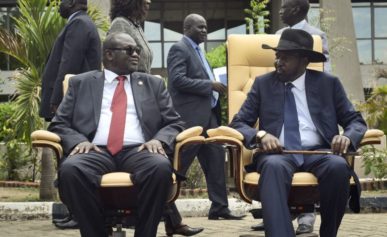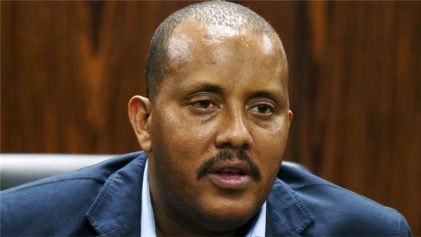
Negotiations in South Sudan’s neighbor Ethiopia have already faced a series of delays and false starts. Both sides met mediators from the regional Intergovernmental Authority on Development for a second day on Saturday, but did not sit down together.
“They are still working on formalizing the agenda that they will hold discussions on,” said the spokesman for Ethiopia’s Foreign Ministry, Dina Mufti.
Asked when the two camps would meet, Dina told Reuters: “We can’t predict. They are working on it.” Ethiopia’s foreign minister had earlier said direct talks would start on Saturday.
Further clashes between South Sundan President Salva Kiir’s SPLA government forces and rebels loyal to former Vice President Riek Machar on Friday suggested the ceasefire demanded by bordering nations was still a long way off.
Western and regional powers, many of whom supported the negotiations that led to South Sudan’s independence from Sudan in 2011, are pressing for a deal, fearing new fighting could slide into civil war and destabilize East Africa.
Clashes have already killed more than 1,000 people, driven 200,000 more from their homes and rattled oil markets.
A rebel spokesman in northern Unity states told Reuters rebel columns were closing in on the capital, Juba, although there was no independent confirmation and the SPLA has regularly dismissed similar reports over the past week.
South Sudan remains one of the continent’s least developed countries for all its crude reserves, estimated by British Petroleum to be sub-Saharan Africa’s third largest.
The fighting erupted on Dec. 15 in Juba, and rapidly spread across the country the size of France along ethnic faultlines.
Kiir accused his long-term political rival Machar, whom he fired in July, of starting the clashes in a bid to seize power and arrested 11 senior political figures he said were involved in the alleged plot.
Kiir is from the country’s Dinka group while Machar is a Nuer – tribal groups have fought each other in the past during tussles for domination, influence and resources.
Machar dismissed the accusation but he has acknowledged leading soldiers battling the government. He has accused Kiir of purging political opponents within the ruling SPLM party ahead of elections next year.
Read the full story at reuters.com


